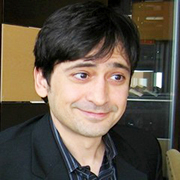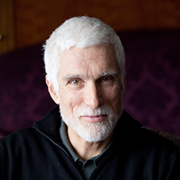New Faculty | Fall 2016
Welcoming a superb group of scholars
The School of Humanities, Arts, and Social Sciences is very pleased to present the newest members of the MIT SHASS faculty. They come to us with diverse backgrounds and vast knowledge in their areas of research, which include the effects of public policy on labor markets; the relationships between social inequality and technological use; stochastic choice; affect, environment, and subjectivity in media; ethical theory; and voting rights.

|
Alberto AbadieProfessor of Economics Alberto Abadie is an econometrician and empirical microeconomist, with broad disciplinary interests that span economics, political science, and statistics. He received his MIT Economics PhD in 1999. Upon graduating, he joined the faculty at the Harvard Kennedy School, where he was promoted to full tenured professor in 2005. He joined the MIT Department of Economics and IDSS in the Fall of 2016.
His research areas are econometrics, statistics, causal inference, and program evaluation. Professor Abadie’s methodological research focuses on statistical methods to estimate causal effects and, in particular, the effects of public policies, such as labor market, education, and health policy interventions.
|

|
Isaiah AndrewsProfessor of Economics Isaiah Andrews is an Assistant Professor in the Department of Economics and a Faculty Research Fellow at the National Bureau of Economic Research (NBER). He was a junior fellow at the Harvard Society of Fellows from 2014-2016 and received his PhD in Economics from MIT in 2014.
He specializes in econometrics, and his research develops robust methods for inference on causal or structural relationships using economic data. In particular, much of Professor Andrews’ work focuses on making efficient use of information in contexts where the data is relatively uninformative about economic relationships of interest.
|
|
|
Dwaipayan BanerjeeAssistant Professor Dwaipayan Banerjee joins the MIT Faculty as an assistant professor of science, technology, and society (STS). He earned his PhD in anthropology at NYU and was a Mellon Postdoctoral Fellow at Dartmouth College.
Banerjee's research is guided by a central theme: how do different kinds of social inequity shape medical, scientific and technological practices? In turn, how do scientific and medical practice ease or sharpen such inequities? At present, Banerjee is working on a book manuscript on the medical, legal and political life of cancer in contemporary North India.
|

|
Claire ConceisonProfessor of Theater Claire Conceison is Quanta Professor of Chinese Culture and Professor of Theater Arts. Her areas of research and teaching are contemporary Chinese theater, cross-cultural exchange and performance, Asian American theatre, translation, and sport as performance. She earned her A.M. in Regional Studies—East Asia from Harvard University and her Ph.D. in Theatre Studies from Cornell University.
Conceison is author of two books, Significant Other: Staging the American in China (University of Hawaii, 2004), which examines representations of Americans on the Chinese stage from 1987-2002, and Voices Carry: Behind Bars and Backstage During China's Revolution and Reform (Rowman and Littlefield, 2009), an autobiography of the late Chinese actor and cultural diplomat Ying Ruocheng. As a director, she has staged student productions of contemporary Chinese and Asian American plays at several American universities.
|

|
Drew FudenbergProfessor of Economics Drew Fudenberg is the Paul A. Samuelson Professor of Economics at MIT. He received an A.B. in applied mathematics from Harvard College in 1978, and a Ph.D. in economics from MIT in 1981.
Fudenberg’s work on game theory ranges from foundational work on learning and equilibrium to the analysis of repeated games and reputation effects to the study of particular games, competition between firms, and other topics in theoretical industrial organization. More recently he has worked on topics in behavioral economics and decision theory such as self-control and stochastic choice.
He is the author of four books: Dynamic Models of Oligopoly (1986) with Jean Tirole; Game Theory (1991) with Jean Tirole; The Theory of Learning in Games (1998) with David K. Levine; and A Long-Run Collaboration on Long-Run Games (2008) with David K. Levine.
|

|
Paul RoquetAssistant Professor Paul Roquet joins MIT as Assistant Professor of Japanese Studies in the Global Studies and Languages section. He received his Phd from UC Berkeley and comes to MIT after completing postdocs at Stanford and Brown.
Roquet’s work focuses on the intersection of affect, environment, and subjectivity, and the use of media like music, video, and literature to reconfigure these relationships. Earlier this year he published Ambient Media: Japanese Atmospheres of Self (Minnesota, 2016), an exploration of how various media came to be used as tools of mood regulation and environmental design in postwar and contemporary Japan. His current project extends this work to think about the stakes of more recent digital tools for reconfiguring the perceptual environment.
|

|
Tamar SchapiroAssociate Professor of Philosophy Tamar Schapiro joined the department in 2016 from Stanford University. Prior to teaching at Stanford, she earned her PhD from Harvard University and received a Junior Fellowship from the Harvard Society of Fellows.
Schapiro's primary areas of interest are in ethical theory, history of ethics, practical reasoning, and human agency. Her early articles, published in Ethics, Noûs, and The Journal of Philosophy, focus on the moral status of children and the more general problem of how to make principled exceptions to moral rules. More recently she has published a series of articles on motivation and action. She is currently working on a book on this topic, tentatively titled, Inclination and the Will: A Kantian Conception of Passion and its Role in Action.
|
|
|
Ariel WhiteAssistant Professor of Political Science Ariel White received her PhD from Harvard University, where she was a doctoral fellow in the Multidisciplinary Program in Inequality and Social Policy and at the Radcliffe Institute for Advanced Study.
Her recent work investigates how potential voters react to experiences with punitive government policies, such as incarceration and immigration enforcement. Other research interests include voting rights, media effects, and political inequality.
|

